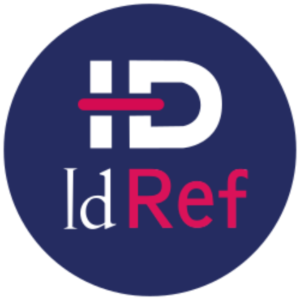
Laurent Moutet
Présentation
IA-IPR de Physique-Chimie, docteur de didactique des disciplines, docteur en chimie organique
Thématiques de recherches actuelles
- Modélisation interdisciplinaire.
- Travail sur les liens mathématiques – sciences physiques.
- Construction d’un outil d’analyse de tâches scolaires mobilisant les mathématiques et la physique ou la chimie.
- Construction et analyse de séquences destinées à des élèves de l’enseignement secondaire et mettant en œuvre des cycles de modélisation complets (résolutions de problèmes) et des cadres de rationalité faisant intervenir la physique ou la chimie.
Résumés des recherches actuelles
L’espace de travail mathématique (ETM) a été développé afin de mieux comprendre les enjeux didactiques autour du travail mathématique dans un cadre scolaire (Kuzniak et al., 2016). L’ETM comporte deux niveaux : un de nature cognitive en relation avec l’apprenant et un autre de nature épistémologique en rapport avec les contenus mathématiques étudiés. Le diagramme des ETM a été adapté (Moutet, 2016) en rajoutant un plan épistémologique correspondant au cadre de rationalité de la physique. Le cycle de modélisation de Blum & Leiss (2005) décrit les différentes étapes utilisées par un chercheur en mathématique lors du processus de modélisation. Le cadre de l’ETM étendu a permis d’analyser les tâches associées à certaines étapes du cycle de modélisation lors d’une séquence d’enseignement faisant intervenir la relativité restreinte (de Hosson, 2010) avec une approche utilisant les diagrammes de Minkowski. Le cadre de l’ETM étendu prend en compte la mobilisation des plans épistémologiques des mathématiques et / ou de la physique pour chacune des tâches demandées aux élèves. Ce cadre a également permis de montrer que GeoGebra, un logiciel de géométrie dynamique, développe des genèses spécifiques par rapport à une activité papier - crayon. Ce cadre a enfin conduit à la réalisation de l’analyse a priori de chacune des tâches à effectuer par les élèves lors d’une séquence d’enseignement et à tester avec succès l’analyse a posteriori du travail effectué par eux.
En utilisant un autre contexte, la prise en compte du plan épistémologique de la chimie, du plan cognitif et des trois types de genèses décrites dans le modèle des ETM est totalement transposable à la description des tâches que les élèves sont amenées à réaliser en chimie des solutions. L’interprétation théorique d’un dosage faisant intervenir des relations algébriques entre les différentes quantités de matières des espèces chimiques qui réagissent est une étape qui pose généralement le plus de problèmes aux élèves. L’analyse a priori des tâches à effectuer, en extrapolant le cadre théorique de l’ETM étendu au domaine de la chimie, permet de proposer une nouvelle stratégie utilisant un autre registre de représentation sémiotique ainsi que l’utilisation du logiciel GeoGebra.
Activité professionnelle
- IA-IPR de Physique-Chimie (académie de Lille)
Participation à des publications de ressources par l’IGEN
-
GRIESP (2016). Expérimentation et modélisation, la place du langage mathématique en physique-chimie, Inspection générale de sciences physiques (IGEN).
-
GRIESP (2015). Les activités documentaires en physique-chimie au collège, au lycée et en CPGE, Inspection générale de sciences physiques (IGEN).
-
GRIESP (2014). Résoudre un problème de physique-chimie dès la seconde, Inspection générale de sciences physiques (IGEN).
Publications
Publications
Analyse d'une séquence d'enseignement de la relativité restreinte : l'apport du modèle de l'ETM étenduAnnales de Didactiques et de Sciences Cognitives, 2018
Article dans une revue
hal-03195485
v1
|
|
Intramolecular Homolytic Displacements. 30. Functional Decarbonylative Transformations of Aldehydes via Homolytically Induced Decomposition of Unsaturated PeroxyacetalsJournal of Organic Chemistry, 2000, 65 (13), pp.3961-3965. ⟨10.1021/jo9918495⟩
Article dans une revue
istex
hal-03196940
v1
|
|
Functional transformation of aldehydes and ketones via homolytic induced decomposition of unsaturated peroxy acetals and peroxy ketalsChemical Communications, 1999, 2, pp.139-140. ⟨10.1039/a808418a⟩
Article dans une revue
istex
hal-03196937
v1
|
Study of a Problem-Solving Activity Using the Extended Mathematical Working Space FrameworkAdvancing and Consolidating Mathematical Modelling, Springer International Publishing, pp.111-124, 2023, International Perspectives on the Teaching and Learning of Mathematical Modelling, ⟨10.1007/978-3-031-27115-1_7⟩
Chapitre d'ouvrage
hal-04081867
v1
|
|
Professional Testimony: Construction and Analysis of a “Graphic Object” in a Physics Class in a 12th Grade Science MajorJoël Bisault, Roselyne Le Bourgeois, Jean-François Thémines, Mickaël Le Mentec, Céline Chauvet-Chanoine. Objects to Learn About and Objects for Learning 1, 1, Wiley, 2022, Online ISBN: 9781119902171 Print ISBN: 9781786306715. ⟨10.1002/9781119902171.ch5⟩
Chapitre d'ouvrage
hal-03589558
v1
|
|
Le cadre théorique de l’ETM étendu : analyse d’une séquence utilisant la relativité restreinteJean-Marie Boilevin; Alain Jameau. Après les 10e rencontres scientifiques.. Actualité des recherches en didactique des sciences et des technologies, Editions de l'ARDIST, pp.249-268, 2021, 978-2-9577091-0-6
Chapitre d'ouvrage
hal-03229421
v1
|
|
The Extended Theoretical Framework of Mathematical Working Space (Extended MWS): Potentialities in ChemistryMathematical Modelling Education in East and West, pp.631-640, 2021, ⟨10.1007/978-3-030-66996-6_53⟩
Chapitre d'ouvrage
hal-03211038
v1
|
|
|
DIAGRAMMES ET THÉORIE DE LA RELATIVITÉ RESTREINTE : UNE INGÉNIERIE DIDACTIQUEEducation. Université Paris 7, 2016. Français. ⟨NNT : ⟩
Thèse
tel-01611332
v1
|
|
|
Diagrammes et théorie de la relativité restreinte : une ingénierie didactiqueLinguistique. Université Sorbonne Paris Cité, 2016. Français. ⟨NNT : 2016USPCC275⟩
Thèse
tel-01867923
v1
|
|
|
Transformations fonctionnelles homolytiques d'aldéhydesChimie organique. Université Bordeaux I, 1998. Français. ⟨NNT : ⟩
Thèse
tel-01620270
v1
|


